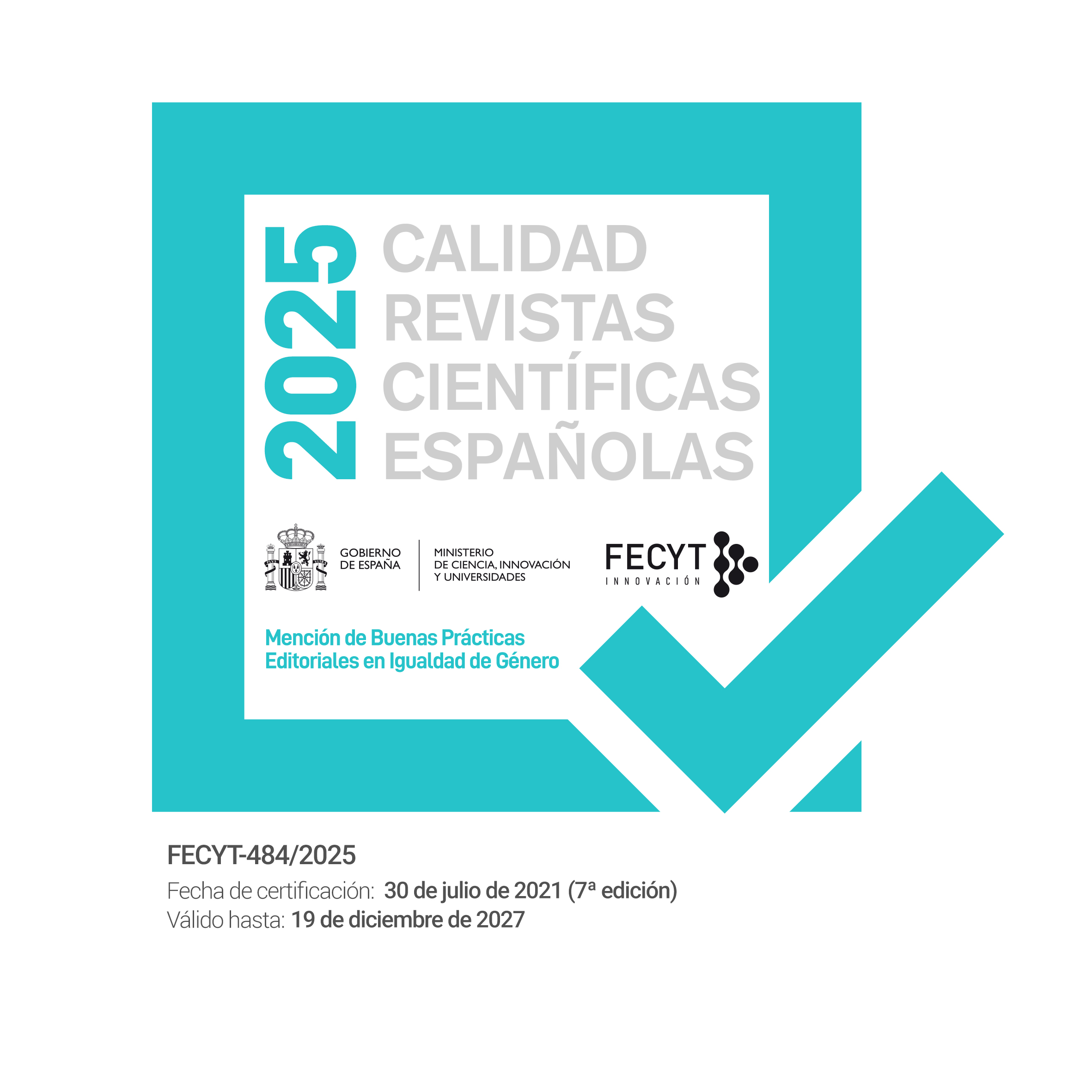People like you and me: the texts of Rosario Castellanos in the ideological contradictions of indigenist language policy
DOI:
https://doi.org/10.5944/hme.14.2021.28280Keywords:
linguistic ideologies, indigenous education, indigenous language, dialogism, Rosario CastellanosAbstract
In this article we analyze documents written by Rosario Castellanos during the years that she worked as a scriptwriter for the puppet plays in the Highlands of Chiapas. These plays were part of educational campaigns aimed at the Tsotsil and Tseltal Maya population. We show that the discourses circulating during the years in which indigenous politics was being constructed were permeated by opposing and contradictory ideological tensions, tensions that were reflected in the proposal and use of categories of identification of the population and their languages, in the theoretical objectives and ideals and in the participants’ personal and collective stories.
Downloads
References
Aguirre Beltrán, Gonzalo. Teoría y práctica de la educación indígena. Ciudad de México: Instituto Nacional Indigenista-Fondo de Cultura Económica, 1992.
Aubry, Andrés. Les Tzotzil Par Eux-Mêmes. Récits et écrits de paysans indiens du Mexique. París: Éditions L’Harmattan, 1988.
Ayala Reyes, Susana. «Hands that Propose and Hands that Respond: Gestural Interaction in Petul-Xun Puppets Performances in Highland of Chiapas», Paedagogica Historica: International Journal of History of Education, 55 no. 2 (2019): 223-252. DOI: 10.1080/00309230.2018.1521447
Ayala Reyes, Susana. «Creatividad en los márgenes del estado: Apropiación de los títeres Petul-Xun en los Altos de Chiapas». PhD diss. Departamento de Investigaciones Educativas del Cinvestav, 2019.
Bakhtin, Mikhail M. «Epic and Novel». En The dialogic Imagination by M.M. Bakhtin, editado por Michael Holquist, 3-40. Austin: University of Texas Press, 1981).
Castellanos, Rosario «Teatro Petul», Revista de la Universidad de México XIX, no. 5, (1965): 30-31.
Cooper, Robert L. La planificación lingüística y el cambio social. Madrid: Cambridge University Press, 1997.
Gómez Gómez, Antonio. El Negro cimarrón. Ya’Yejal J-Ik’al. San Cristóbal de las Casas: UNAM, 2000.
Holland, Dorothy y Jean Lave. «History in Person: An Introduction». En History in Person. Enduring Struggles, Contentious Practices, Intimate Identities, editado por Dorothy Holland y Jean Lave, 3-33. Santa Fe: School of American Research Advanced Seminar, 2001.
Instituto Nacional Indigenista, Teatro Petul. México: Instituto Nacional Indigenista, 1956.
Instituto Nacional Indigenista, Teatro Petul 2. México: Instituto Nacional Indigenista, 1961.
Instituto Nacional Indigenista, Teatro Petul 3. México: Instituto Nacional Indigenista, 1962.
Jackson Albarrán, Elena. «Comino Vence Al Diablo and Other Terrifying Episodes: Teatro Guiñol’s Itinerant Puppet Theater». En Seen and Heard in Mexico: Children and Revolutionary Cultural Nationalism, 175-212. Lincoln; London: University of Nebraska Press, 2014.
Jiménez Izquierdo, Juan. «Entrevista con Don Ferruco». Tramoya 10, (1978), 49-53.
Lewis, Stephen E. Rethinking Mexican Indigenismo: The INI’s Coordinating Center in Highland Chiapas and the Fate of a Utopian Project, 133-154; 155-174. Albuquerque: University of New Mexico Press, 2018.
Lewis, Stephen E. «Modernizing Message, Mystical Messenger: The Teatro Petul in the Chiapas Highlans, 1954-1974». The Academy of American Franciscan History, 67, no. 3, (2011): 375-397. http://muse.jhu.edu/journals/tam/summary/v067/67.3.lewis.html
López Caballero, Paula y Ariadna Acevedo-Rodrigo, eds. «Introduction: Why Beyond Alterity?» En Beyond Alterity. Destabilizing the Indigenous Other in Mexico, 3-28. Tucson: The University of Arizona Press, 2018.
López Caballero, Paula. «Las políticas indigenistas y la ‘fábrica’ de su sujeto de intervención en la creación del primer Centro Coordinador del Instituto Nacional Indigenista (1948-1952)». En Nación y alteridad. Mestizos, indígenas y extranjeros en el proceso de formación nacional, coordinado por Daniela Gleizer y Paula López Caballero, 69-108. México D.F.: Universidad Autónoma Metropolitana/Ediciones EyC, 2015.
López García, María. «Aprendan el “vosotros” para hablar con los españoles en su idioma: La identificación lingüística en Argentina como tensión entre el orgullo y la minusvaloración», Historia y Memoria de la Educación, 2 (2015): 97-124. DOI:10.5944/hme.2.2015.14234
Medina Hernández, Andrés. «Estudio preliminar. La trama, los hilos y los nudos de un proyecto de investigación. La Universidad de Chicago en los Altos de Chiapas». En R. Guber, La articulación etnográfica, 11-34. Buenos Aires, Argentina: Editorial Biblos, 2013.
Navarrete Cáceres, Carlos. Rosario Castellanos, su presencia en la antropología mexicana. México, D.F.: Instituto de Investigaciones Antropológicas de la Universidad Nacional Autónoma de México-Programa de Investigaciones Multidisciplinarios sobre Mesoamérica y el Sureste, 2007.
Pitarch Ramón, Pedro. «Un lugar difícil: Estereotipos étnicos y juego de poder en Los Altos de Chiapas». En Chiapas: Los rumbos de otra historia, editado por Juan Pedro Viqueira y Mario Humberto Ruz, 237-250. México, D.F.: Universidad Nacional Autónoma de México, Centro de Investigaciones y Estudios Superiores en Antropología Social, Centro de Estudios Mexicanos y Centroamericanos, Universidad de Guadalajara, 1995.
Sommers, Joseph. «Forma e ideología en “Oficio de tinieblas” de Rosario Castellanos», Revista de Crítica Literaria Latinoamericana, 2, no. 7/8 (1978): 73-91. DOI: 10.2307/4529870
Viqueira, Juan Pedro. «Las causas de una rebelión india: Chiapas, 1712». En Chiapas los rumbos de otra historia, editado por Juan Pedro Viqueira y Mario Humberto Ruz. D.F., 103-143. México: Universidad Nacional Autónoma de México, Centro de Investigaciones y Estudios Superiores en Antropología Social, Centro de Estudios Mexicanos y Centroamericanos, Universidad de Guadalajara, 1995.
Voloshinov, V. N. y Bajtín, M. La construcción de la enunciación. Buenos Aires: Editorial Almagesto, 1930/1978.
Zabaltza Pérez-Nievas, Xabier. Historia de las lenguas y los nacionalismos. Barcelona: Gedisa, 2006.
Downloads
Published
How to Cite
Issue
Section
License
Authors who publish in Historia y Memoria de la Educación agree to the following terms:
- Authors retain copyright and grant the journal right of first publication with the work simultaneously licensed under a Creative Commons Attribution-NonCommercial 4.0 International that allows others to share the work with an acknowledgement of the work's authorship and initial publication in this journal.
- Authors are able to enter into separate, additional contractual arrangements for the non-exclusive distribution of the journal's published version of the work (e.g., post it to an institutional repository or publish it in a book), with an acknowledgement of its initial publication in this journal.
- Authors are permitted and encouraged to post their work online (e.g., in institutional repositories or on their website) prior to and during the submission process, as it can lead to productive exchanges, as well as earlier and greater citation of published work (See The Effect of Open Access).












